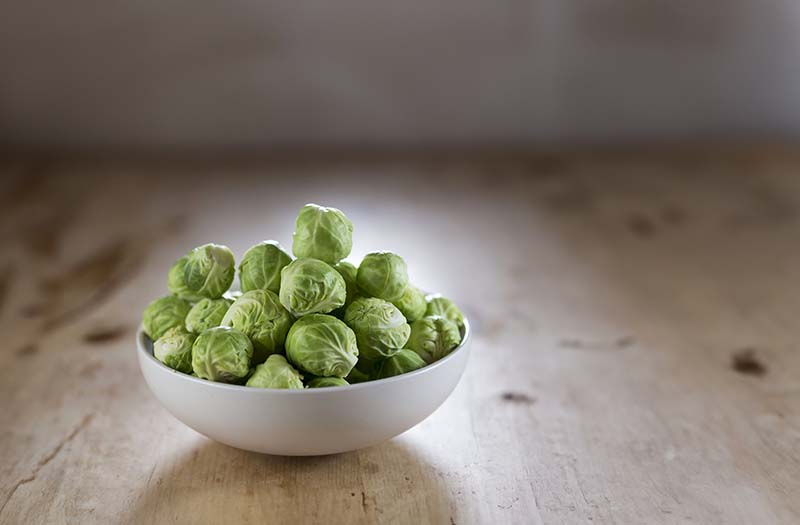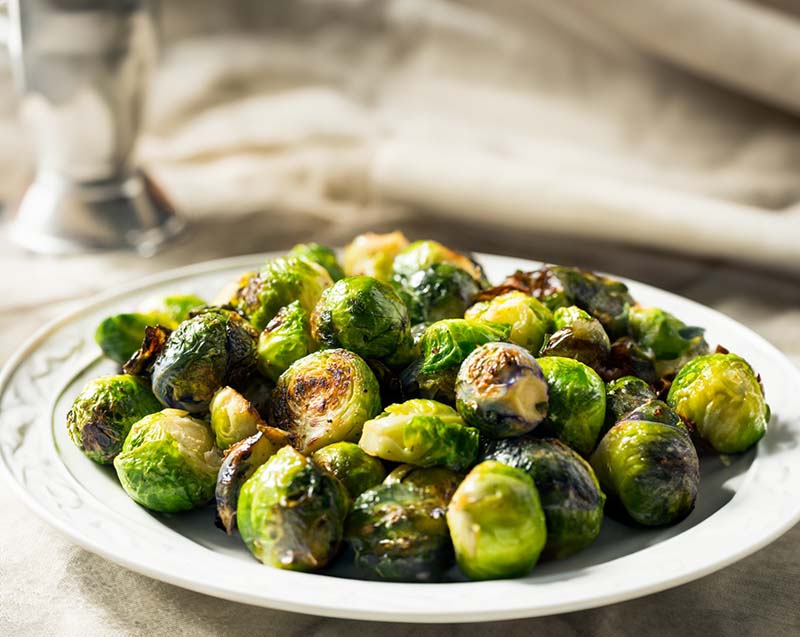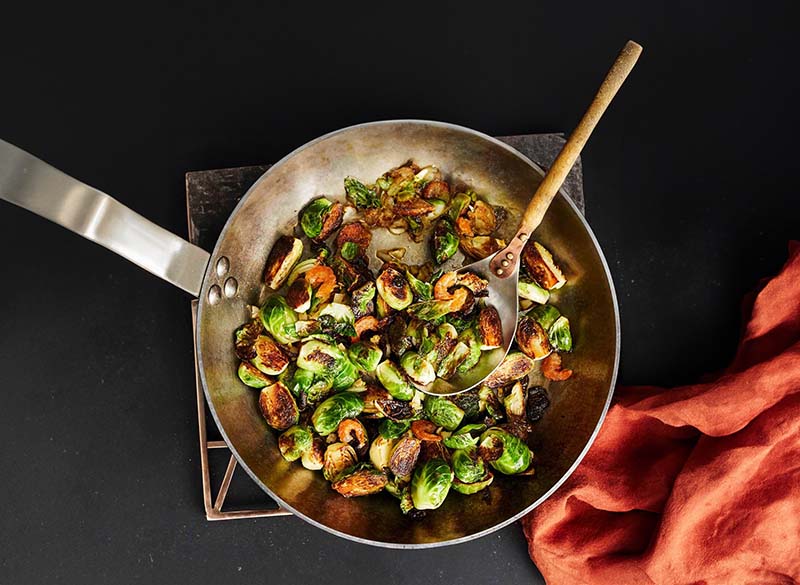Are Brussels sprouts good for weight loss? Brussels sprouts are part of the Brassicaceae family of vegetables, closely related to kale, cauliflower and mustard greens.
These cruciferous vegetables look like miniature cabbages and are often trimmed, cleaned and cooked to make a healthy side dish or main dish.
Read more
- Is Salmon Good for Weight Loss? Discover the Surprising Benefits!.
- Does Spinach Help You Lose Weight? Insights and Tips.
- Are Sweet Potatoes Good for Weight Loss? Exploring the Reality.
Are Brussels Sprouts Good for Weight Loss?
Brussels sprouts are an excellent choice for those aiming to manage their weight effectively. They are not only low in calories but also rich in dietary fiber, contributing to a sense of fullness and contentment. This aspect is crucial as it aids in reducing overall calorie consumption, which is a key factor in weight loss. The fiber in Brussels sprouts slows the digestion process, enhancing the body’s ability to signal when it’s full, which means you’re likely to feel satisfied for a more extended period.

Beyond their role in appetite control, Brussels sprouts are packed with vital nutrients and antioxidants, elevating their status as a nutritious addition to a weight loss diet. By integrating Brussels sprouts into your regular meals, you’re not just cutting down on calories, but also nourishing your body with essential nutrients.
Brussels Sprouts Nutrition Facts
One cup of boiled Brussels sprouts, weighing approximately 156 grams, is a low-calorie yet nutrient-dense food choice, offering just 56 calories. This serving size contains a modest 0.8 grams of fat, making it an excellent option for those monitoring their fat intake. The sodium content is remarkably low at just 16 milligrams, which is beneficial for maintaining healthy blood pressure levels.
In terms of carbohydrates, this portion provides 11 grams, of which a significant 4.1 grams is dietary fiber. This high fiber content supports digestive health and helps in feeling fuller for longer, aiding in weight management. The natural sugars in Brussels sprouts are relatively low, at 2.7 grams, making them a suitable option even for those watching their sugar intake.
Protein-wise, Brussels sprouts offer a surprising 4 grams per cup, which is notable for a vegetable. This makes them a valuable protein source, especially for vegetarians and vegans.
Brussels sprouts are exceptionally rich in Vitamin K, providing 219 micrograms, which is crucial for blood clotting and bone health. They are also an excellent source of Vitamin C, with 97 milligrams per cup, supporting immune function and skin health. Additionally, they provide a good amount of Folate (93.6 micrograms), essential for DNA synthesis and repair.
How Sprouts Support Weight Loss?
Sprouts are an effective food in weight loss efforts thanks to their rich nutritional content. They stand out as a source of plant-based protein, an essential macronutrient that aids in building and repairing tissues. The high protein content in sprouts is beneficial for weight loss as it helps maintain muscle mass while shedding fat, and it also keeps you feeling full for longer durations. This can significantly reduce the likelihood of unnecessary snacking and overeating.
Furthermore, sprouts are abundant in dietary fiber, which plays a crucial role in weight management. Fiber aids in digestion, provides a feeling of fullness, and helps control appetite, thereby naturally limiting food intake. This is particularly important in a weight loss journey as it prevents overeating.

Another significant aspect of sprouts in weight management is their low-calorie nature. Consuming foods that are low in calories but high in nutrients is a strategic approach to reducing overall calorie intake without compromising on nutritional needs.
Sprouts are incredibly versatile and can be easily incorporated into various meal options such as salads, soups, or even as a standalone snack. This versatility ensures that they can be a regular part of your diet without becoming monotonous.
The recommendation of consuming 100 to 150 grams of sprouts daily is a good guideline to follow to harness their weight loss benefits. However, it should be noted that although sprouts contribute positively to weight loss, achieving lasting and significant results requires a comprehensive approach. This includes maintaining a balanced diet, engaging in regular physical activity, and adopting healthy lifestyle habits.
Health Advantages of Brussels Sprouts
Brussels sprouts are a nutritional powerhouse with multiple health benefits:
Promotes Digestive System Health
These cruciferous vegetables are rich in fiber, particularly soluble fiber, which absorbs water in the digestive tract, aiding in digestion. This fiber also nourishes the beneficial gut bacteria, crucial for maintaining a healthy gut flora balance.
However, if your diet is currently low in fiber, start incorporating Brussels sprouts gradually to avoid digestive discomfort such as bloating or gas. Remember to increase your water intake alongside to facilitate the fiber’s function.

May Reduce the Risk of Digestive Disorders
Regular consumption of fibrous foods like Brussels sprouts is associated with a lower risk of digestive health issues, including gastrointestinal cancers, as indicated by studies in the field of pharmacology.
Aids in Immune System Support
Often overshadowed by citrus fruits, Brussels sprouts are also an excellent source of vitamin C, essential for immune system function. A cup of raw Brussels sprouts contains the full recommended daily amount of vitamin C for women.

Benefits Cardiovascular Well-being
Consuming Brussels sprouts can contribute to heart health. The fiber in these vegetables helps to improve blood lipids, such as cholesterol, and blood sugar control, both key factors in reducing heart disease risk.
Supports Eye Health
Beyond the well-known benefits of carrots, Brussels sprouts are also vital for eye health. They contain vitamin A, lutein and zeaxanthin, which are crucial for maintaining good vision and healthy cell growth.

May Provide Protection Against Certain Cancers
Cruciferous vegetables like Brussels sprouts contain compounds that may help prevent cancer cells from developing, by enhancing antioxidant defenses and promoting healthy cell signaling.
Possibly Reduces the Risk of Birth Defects
Brussels sprouts are rich in folate, an essential nutrient for pregnant individuals to prevent birth defects in the brain and spine. Folate is also vital for red blood cell formation and function, and its deficiency can lead to certain forms of anemia.

Promotes Cognitive Well-being
Glucosinolates in Brussels sprouts support brain health by protecting against inflammation, which is linked to chronic diseases and tumor growth. Regular consumption of these and other glucosinolate-rich foods like broccoli and cauliflower is beneficial for brain health.
Aids in Healthy Weight Loss
Being low in calories yet nutrient-dense, Brussels sprouts are ideal for weight loss diets. They are filling without contributing excessive calories, aiding in weight management.

Potential Drawbacks of Consuming Brussels Sprouts
While Brussels sprouts are highly nutritious, there are some potential drawbacks to consider, especially when consumed raw:
- Increased Gas and Bloating: Like other cruciferous vegetables, raw Brussels sprouts contain raffinose, a type of indigestible fiber. This fiber can be challenging for the stomach to process. When the bacteria in the large intestine attempt to break down raffinose, they produce gases such as hydrogen, carbon dioxide, and methane, which can lead to increased gas and bloating.
- Digestive Discomfort: For individuals with pre-existing digestive conditions like irritable bowel syndrome (IBS), consuming Brussels sprouts, particularly in raw form, may exacerbate symptoms like discomfort and bloating. This is due to the raffinose content and the general fiber composition of these vegetables.
- Acclimation Period: People who are not accustomed to eating Brussels sprouts or similar vegetables might experience more pronounced digestive side effects as their bodies adjust to the high fiber content. This is a common occurrence when significantly increasing fiber intake in the diet.
- Bitter Flavor: Raw Brussels sprouts have a notably bitter taste, which some people might find unpalatable. This bitterness is characteristic of many cruciferous vegetables and can be a barrier to their consumption.

Note: To mitigate these potential drawbacks, cooking Brussels sprouts can be helpful as it tends to soften the fibers and reduce the bitterness, making them easier to digest and more palatable. If you are introducing Brussels sprouts into your diet, it’s advisable to start with smaller amounts and gradually increase the intake to allow your digestive system to adjust. Additionally, cooking methods like steaming, roasting, or sautéing can enhance their flavor and make them more enjoyable to eat.
Conclusion
In conclusion, Brussels sprouts are a great choice for weight loss. Their high fiber and low calorie content, along with a rich nutrient profile, answer the question, “Are Brussels sprouts good for weight loss?” perfectly. If you’ve used Brussels sprouts in your diet, share your experience in the comments. Visit Sure Life Health for more health tips and discover how nutritious foods like Brussels sprouts contribute to wellness.
Professor Gaye Cunnane, PhD, MB, FRCPI
As the Director of Health and Wellbeing at RCPI, Professor Gaye Cunnane is at the helm of initiatives aimed at enhancing the health and well-being of RCPI Trainers and Trainees. Her role extends beyond administration; she is also a respected clinical professor of rheumatology and a consultant rheumatologist at Trinity College Dublin (TCD) and St James’s Hospital. Prof. Cunnane’s medical journey began at TCD, where she graduated from medical school, and her path has been marked by both clinical and academic excellence.
After completing her basic clinical training in medicine, she embarked on PhD studies at University College Dublin and St Vincent’s University Hospital. Her research during this period was focused on prognostic markers in early inflammatory arthritis, a project that saw her collaborating with esteemed universities across Europe, including in Switzerland, The Netherlands, the UK, and Sweden.
Prof. Cunnane’s career took her to the University of California, San Francisco, where she spent three years delving into research on new treatments for lupus. Her academic prowess led her to the University of Leeds in 2001 as a senior lecturer, before returning to Ireland in 2003 to assume her current roles. She has also served as the National Specialty Director for Rheumatology training in Ireland, Programme Director for Basic Specialist Training with RCPI, and as a past President of the Irish Society for Rheumatology.
PUBLISHED ARTICLES
“Rheumatic disease differentiation using immunoglobulin G sugar printing by high-density electrophoresis”: Published in The Journal of Rheumatology, this study reflects her in-depth investigation into rheumatic diseases.
“Benefits of exercise in patients with rheumatoid arthritis: a randomized controlled trial”: This research work, highlighting the positive impact of exercise on rheumatoid arthritis, underscores Prof. Cunnane’s dedication to practical, patient-centered research.
Additionally, Prof. Cunnane has made notable contributions to the Annals of the Rheumatic Diseases, discussing early referral, diagnosis, and treatment of rheumatoid arthritis. She has also been involved in a study on the NCBI platform investigating exercise benefits in rheumatoid arthritis patients.
Professor Gaye Cunnane’s career is a testament to her commitment to improving patient outcomes in rheumatology through rigorous research, clinical excellence, and dedicated teaching. Her work continues to influence the field of rheumatology, both in Ireland and internationally.

